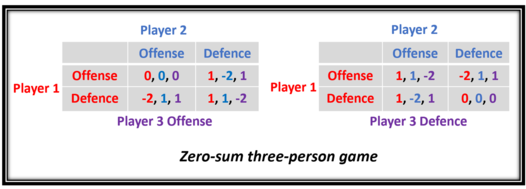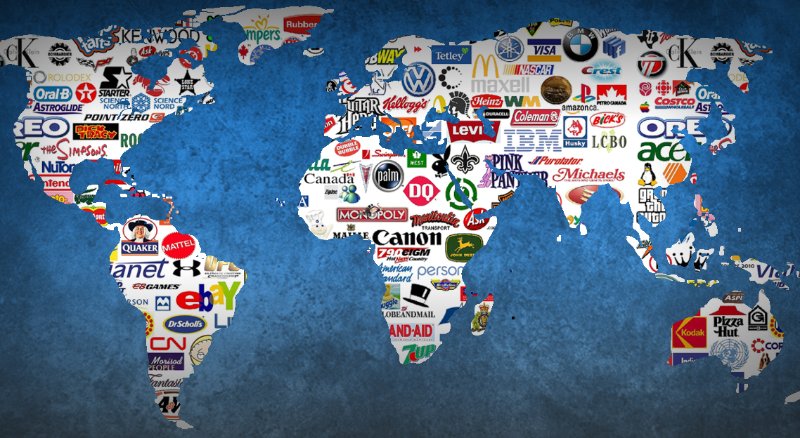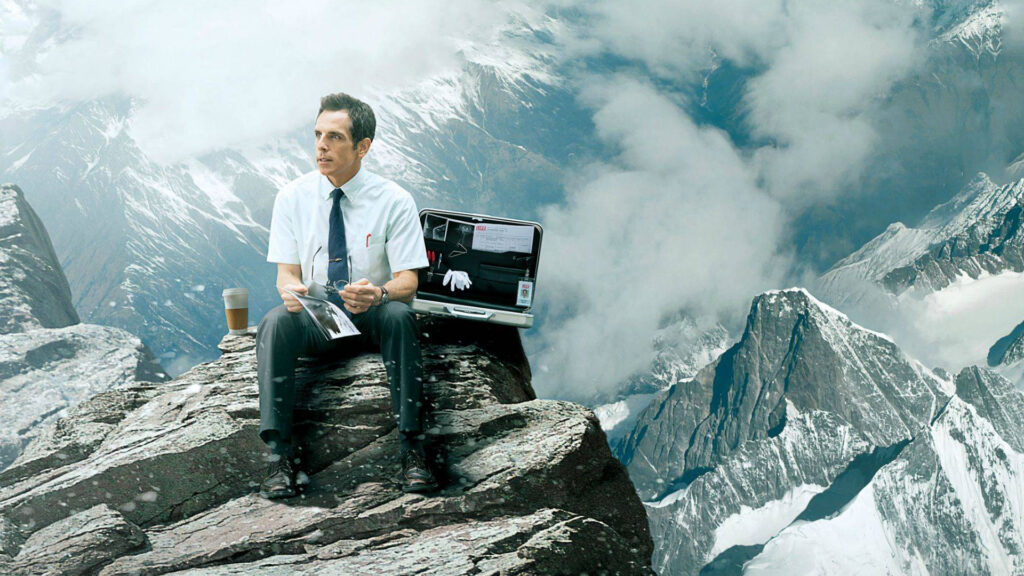This article will offer a reflection on contemporary society, primarily focusing on the West but not limited to it. In today’s era, it seems that individuals have access to everything at their fingertips.
However, possessing everything does not necessarily contribute to their overall happiness. Contrary to expectations, the greater comfort people enjoy, the more inclined they are to seek adventure. In this article, we’ll explore whether adventure is becoming a thing of the past.
The Pareto distribution

Before delving further into our analysis, it’s important to address one key concept: the Pareto principle, also known as the “80-20 rule,” which suggests that 80% of outcomes stem from 20% of causes. While named in honor of Pareto, in practice, these proportions can often be even more pronounced.
For instance, consider a hypothetical scenario where a new sport is introduced. Automatically, a segment of the population may possess the natural talent required to excel in it, consequently garnering the majority of attention.
This principle appears to be an inherent phenomenon, not a construct of society. It applies across various domains, including music, literature, business, and even mating.
For instance, consider the popular dating app Tinder, where only a small percentage of men receive the majority of matches. It’s instances like these that lead us to perceive nature as unjust as we these factors often don’t depends on our own will.
Zero-sum game

The zero-sum game (where one’s gain equates to another’s loss) implies that any outcome in a zero-sum scenario is Pareto optimal. Typically, a game where all strategies lead to Pareto optimality is termed a conflict game.
This indicates that resources on Earth are finite, necessitating individuals to compete for them. However, they must also ensure that the situation remains acceptable for other losing parties to tolerate and continue participating in the game and exchanges.
Countries are like large corporations

Throughout history, nations have engaged in continuous wars for resources, spanning natural resources, territory, geopolitical positioning, and economic advantages.
For a nation to progress, it must either maintain a favorable balance in foreign trade or exploit resources from other countries, among other strategies.
Achieving internal growth poses a greater challenge for already developed countries, as it demands a substantial amount of innovation.
For instance, when a country increases its production, sales, and consumption of superficial goods, the likelihood of a healthy economy and comfortable citizens also increases.
It’s evident, for instance, that the US leads in technical advancement, while France excels in luxury goods, and while China seems to be the world’s prefer manufacturer.
What does it take to be a developed country ?

During the industrial revolution, aspiring leading nations had to embrace factory work and adopt the division of labor, often at the expense of workers’ well-being.
In my opinion, individuals benefit from engaging in a diverse array of tasks in their lives. Being able to complete a process with meticulous attention from beginning to end is inherently more fulfilling but not necessarily what’s more profitable.
This philosophy remains relevant in contemporary society, particularly within capitalist systems driven by consumerism and the pursuit of superficial products.
Why the need to compete ?

A nation is compelled to engage in competition whether it desires it or not. While smaller countries may adopt pacifist approaches, others must safeguard themselves against external threats.
Consider having neighbors who possess superior weaponry and could overpower you at any moment. Clearly, for ethical reasons and public perception, actions must be more discreet.
Typically, what occurs is a group of individuals attempting to manipulate a country’s leadership to divide two factions within the nation. They then seek to persuade the leader to grant them access to resources in exchange for support in the future.
This scenario has repeated itself numerous times, which is why many countries are developing atomic weapons to deter any potential suicidal attack.
These advancements come at a significant cost and require a portion of the nation to make sacrifices, often living well below what they contribute to society.
Conspicuous consumption

Citizens are entrenched in the notion perpetuated by the media that fulfillment is contingent upon amassing as many material possessions as possible.
In earlier times, people would choose land and build their homes. Nowadays, individuals dedicate their entire lives to saving up to pay off a mortgage for a house.
In contemporary times, this cycle resembles a hamster incessantly running in a wheel, tirelessly striving forward without pausing to ponder its true purpose in life, despite a palpable sense of awareness.
Even worse, individuals attempt to find meaning in seeking validation from their peers through the acquisition of status symbols. However, the true solution lies within oneself.
Schools to become mindless and obedient

I’ve always found it peculiar that my post-high school studies weren’t significantly different from my high school curriculum.
I’ve long suspected that society, through the education system, aims to ensure that individuals are molded to fulfill roles that may not align with their passions. To be exact, only a select few socioeconomic groups prioritize investing in their children’s careers from a young age.
For a nation to function efficiently, it requires numerous workers to undertake mundane and repetitive tasks. People typically wouldn’t opt for such roles willingly unless they had no other options. This is precisely the outcome of pursuing lengthy studies.
What people really wants

A sense of adventure
I’ve noticed that many individuals, particularly young men, have a tendency to watch numerous adventure movies, sports, and play games. This inclination suggests to me that they are yearning for adventure and seeking personal growth.
Connecting with nature and people
Moreover, people often consume a plethora of travel videos and content showcasing life in nature, including farming, fishing, hunting, and cooking.
In my opinion, this indicates a significant disconnection from nature and a lack of appreciation for living in the present moment, discovering new culture and people.
To live in the present
While I comprehend the concept of sacrificing the present for a brighter future, I find that for the average citizen, this envisioned future may never materialize, extending even to future generations.
Initially, life is expected to begin after school, followed by retirement, which is presumed to be the period when most individuals can finally pursue what they genuinely desire. However, by this stage, it’s often too late, as our biology has already begun to decline both mentally and physically.
By this point, after sacrificing much of our present and passion for a conventional job, resentment has irreversibly altered us.
To be truly useful
Above all else, individuals crave a genuine sense of usefulness to others. This goes beyond mere assembly line tasks to truly connect with customers and directly contributing to their satisfaction at work.
There’s also a physical aspect that people require – a sense of connection to something tangible. This is why I believe modern-day engineers, despite earning six-figure salaries, often lack fulfillment.
A real sense of legacy
Another aspect of the mission for both men and women is to leave a legacy, encompassing not only wealth or property but also a life philosophy on achieving inner peace.
Currently, many individuals are pursuing results at any cost, often sacrificing their ideals in pursuit of external validation that ultimately remains elusive.
Peace
Ultimately, people desire peace, which entails aligning with their values and harboring no regrets regarding life’s choices.
Having lived a full life with no stone unturned. Being faithful to oneself, from beginning to the end.
To achieve their full potential
Determining whether everyone has something to offer to the world, or if only a select few can truly contribute, is difficult.
However, I firmly believe that most individuals experience profound sadness when they are underutilized and fail to develop their skills or wisdom.
Are we modern slaves or prisoners ?

Essentially, yes, I believe that’s the case for many of us, particularly individuals from lower socioeconomic backgrounds. We often find ourselves relegated to positions that fail to capitalize on our skills or talents.
While genius can emerge unexpectedly from any source, a combination of high IQ and years of dedicated effort typically results in expertise within a particular field.
However, the system is evidently designed in a way that discourages many individuals from pursuing these aspirations and instead compels them into breadwinning jobs.
Clues that we might be modern slaves
- Many occupations are specialized and lack intrinsic meaning
- Education is compulsory and highly recommended until reaching 23 years or older
- Intelligence quotient (IQ) is assessed and recognized long before reaching high school.
- Traditional medias often convey messages that foster insecurity
- The majority of experiences come at a cost in today’s society even the ones that are supposed to be free
- Costs for various goods and services are continually on the rise
- Land ownership used to be free, but now it requires a lifetime to be paid off
- Taxes and deductions from salaries are exorbitantly high, limiting opportunities for investment
- Retirement doesn’t take inflation in consideration
- Freedom and rights are getting taken away from us, such as the right to drive a petrol car
- Similar to the era of the coliseum, the populace is tempted to spectate major sporting events as a placebo treatment for their lack of adventure
- The media promotes the narrative that other countries are far worse off than they truly are
- Luxury goods are now being advertised in areas with a lower socioeconomic status
- The system is structured in a way that only the wealthiest and most educated individuals can access the top schools and opportunities
- The government enforces laws that promote the purchase of expensive electric cars while prohibiting the use of older, yet reliable, technology.
- Inflation and inheritance taxes ensure that we remain stuck in the middle class, preventing upward mobility.
- Taxes are sometimes tied to nationality; for instance, U.S. citizens are taxed by the U.S. regardless of whether they live and earn income within the country or abroad. France is currently considering adopting a similar policy.
- Tax laws are intentionally vague, allowing the state to exercise discretion and maintain control over business owners.
- A person is no longer the owner of the fruits of their labor.
- People wield power not because of their abilities, but due to inheritance or clan affiliation.
How to free ourselves

Freeing oneself start with questioning the world and institutions. To try to understand what role you are occupying at this moment and how all the cogs are working together.
Financial freedom
Attaining financial freedom is undoubtedly a valuable asset, although it’s not an easy feat, given that for most people, time is closely tied to money. Moreover, inheritance typically dissipates rapidly in the absence of proper education.
The reality is that passive assets often evolve into full-time businesses, and not necessarily ones that are enjoyable. Even managing real estate properties and being a landlord can present its challenges.
Decorelate time and money
Consider investing in projects that have the potential to disconnect your time from monetary obligations, thereby allowing you to pursue your true passions or generate passive income. However, finding such opportunities isn’t always straightforward.
Search for new form of opportunities
It frequently demands creativity and a willingness to bend certain rules, as well as dedicating every waking moment to advancing toward your goals.
Many successful innovations have yet to be regulated and initially operate in low competitive environments. That is why tech bubbles have been so successful lately.
Avoid escapism
Many individuals tend to invest significant amounts of time in avoiding life’s realities, whether through YouTube, Instagram, or video games.
Life is finite, which is why you shouldn’t spend excessive time on these activities. Your responsibility is to ensure that you or future generations stay one or two steps ahead of the competition to actually be on the good side of the Pareto distribution. Although nothing is guaranteed, since the cards are reshuffled with each generation.
Refrain from seeking enjoyment solely through purchased goods and experiences
Life ought to revolve around uncomplicated joys, like appreciating nature. For instance, a day spent at the beach relishing caught seafood serves as an excellent illustration.
Another example includes spending quality time with friends playing sports. Happiness shouldn’t be derived from purchasing expensive attire or frequenting upscale restaurants merely for the sake of impressing others.
The problem lies in the contemporary tendency for people to equate the amount of money spent with the quality of experiences, a correlation that is entirely unfounded.
Optimize taxes within legal boundaries
For instance, if your business operates primarily online across multiple countries, it would be wise to base it in a location with low taxes.
This approach, like that used by many large corporations, provides a significant advantage in terms of reinvestment and overall competitiveness of your service.
Imagine one country taxing its citizens up to 90%, while another imposes no taxes. Which of these citizen do you think would be more competitive in the market and will end up growing his project?
Conclusion
In contemporary times, many individuals are undoubtedly experiencing a form of slavery, although it may not be as visibly apparent as in the past, the underlying dynamics remain consistent.
This relationship isn’t merely a construct of society but may reflect a fundamental aspect of nature itself. While there’s undeniable progress in terms of comfort in average life, this doesn’t necessarily translate to spiritual improvement or a sense of fulfillment for citizens.
Education could play a crucial role in guiding individuals from a young age to discover their life’s purpose and dedicate as much time as possible to it.
Maybe it falls upon parents to fulfill this role, as schools are often designed to achieve the opposite. Additionally, it’s important to recognize the value of every job in society, and sometimes, a profound sense of wisdom can enable individuals to find enjoyment in the present moment.


GIPHY App Key not set. Please check settings